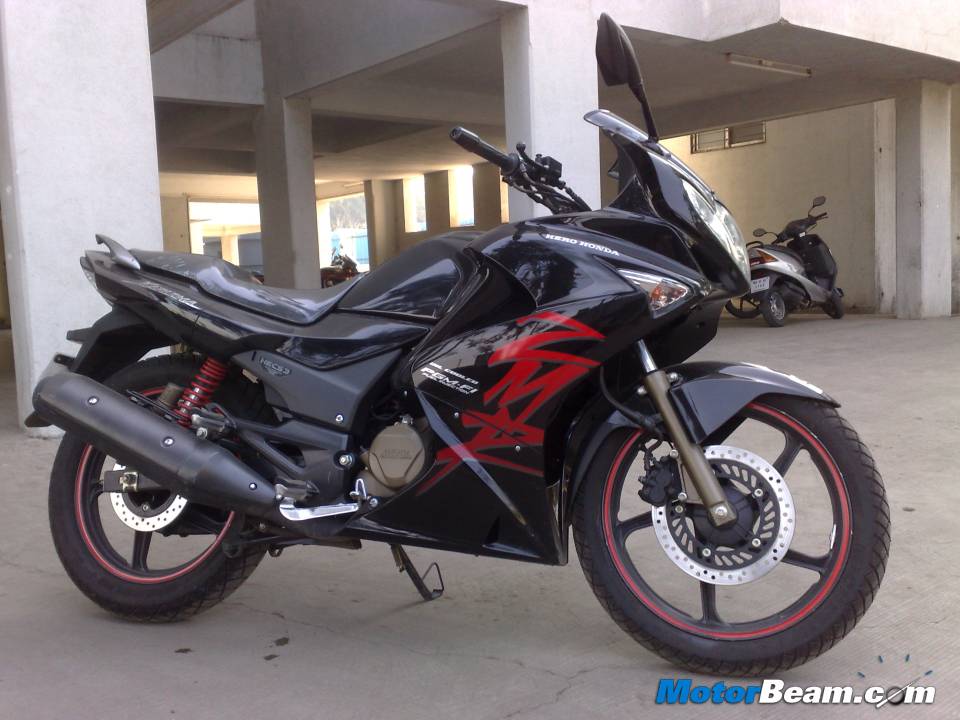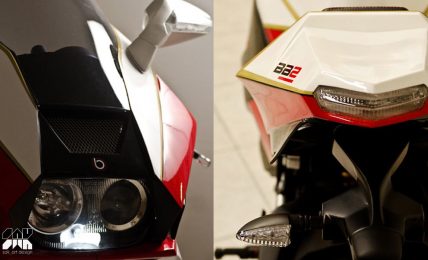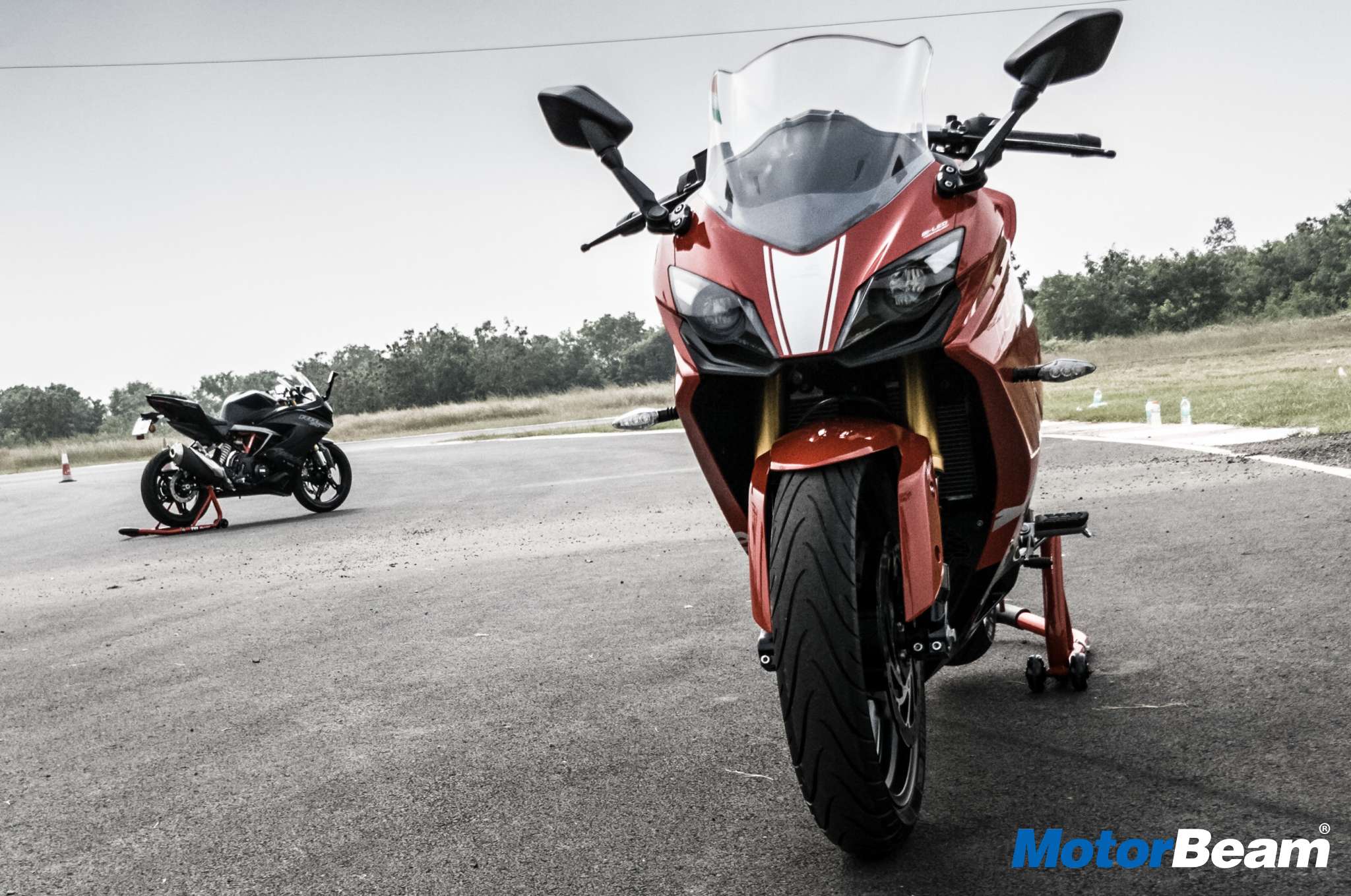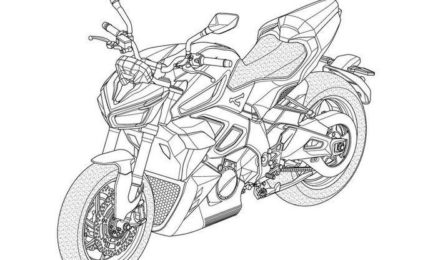Bajaj Auto has unveiled the next generation Pulsar, which is the second generation of the most popular motorcycle in India. The Pulsar 200 NS (Naked Sport) has alot of firsts in the segment and will live on its promise of being high on power, fun and affordability. Now the obvious question is, which bike would you chose to buy if you have a budget of below Rs. 1.20 lakhs. Even though Bajaj has chosen not to reveal the prices, they have given a hint that it will be below Rs. 1 lakhs. With a few estimations (like fuel efficiency) in place, we have done a quick comparo of these three bikes to find out which is the king of this segment.
Hero Karizma ZMR FI
The bike with the lowest power to weight ratio, the Karizma ZMR can not be ruled out just because it is not that quick. The Karizma ZMR is highly reliable and a comfortable tourer for long distance touring and well suited to tall riders. The engine might not make your heart skip a beat but is extremely smooth and produces torque well down the revv range, making cruising at high speeds a breeze. The styling might not be to everyones liking and the unavailability of spares are something which are not very pleasing.
Yamaha YZF-R15 Version 2.0
[singlepic id= 8207 w=540 h=375 float=center]
What is a 150cc doing in between these 200cc + bikes. Well, the Yamaha R15 is a very potent machine and although it is int anywhere as quick in acceleration or top speed as the Pulsar 200 NS is expected to be, the R15’s USP is the way it lays down its 17 PS of power. The killer looks can’t be matched, while the handling is the sharpest of any motorcycle sold in India (below 600cc). The brakes, engine refinement, quality all negate the relatively higher price of the R15 Version 2.0. However, the aggressive riding position and almost un-usable pillion seat makes the R15 not a very practical machine.
Bajaj Pulsar 200 NS
[singlepic id=10784 w=540 h=375 float=center]
The most awaited bike since quite some time now, the next generation Pulsar is finally here. Powered by a 200cc, 4-valve engine with triple spark plugs, the Pulsar 200 NS looks very strong on paper. The next generation Pulsar has a smaller tank too (smallest ever for a Pulsar), which goes to show that losing weight was a priority. The power to weight ratio is the highest, while the cost per BHP (as per our estimated price) is the lowest, giving bang for the buck, something which the Pulsars are known for. The streetfigher looks, power output and value for money are the evident positives of the next generation Pulsar. The lack of fuel injection, no full fairing and projectors are the obvious drawbacks to most.
Pulsar 200 NS vs Yamaha R15 V2.0 vs Karizma ZMR – Quick Comparo
| Bikes | Karizma ZMR | Pulsar 200 NS | Yamaha R15 V2.0 |
| Parameters | |||
| Engine (in cc) | 223 | 200 | 150 |
| Power (in BHP) | 17.6 | 23.5 | 16.76 |
| Torque (in Nm) | 18.35 | 18.3 | 15 |
| Weight (in kgs) | 159 | 145 | 136 |
| Power To Weight | 110.7 | 162.1 | 123.2 |
| 0 – 100 kmph (in seconds) | 13.5 | 9.8 | 11.5 |
| Top Speed (in kmph) | 126 | 136 | 130 |
| Price (in Rs, ex-showroom, Delhi) | 95500 | 95000 | 107000 |
| Cost Per BHP (in Rs) | 5426 | 4043 | 6384 |
| Mileage (in kmpl) | 38 | 35 | 35 |
Our Choice – At this moment, without even riding the Pulsar 200 NS, it is very difficult to chose one but the next generation Pulsar 200 NS does look promising. If Bajaj has been able to iron out all the issues and improved refinement, then the all new Pulsar will be difficult to beat. Either ways, the Karizma ZMR gives no threat to the Pulsar 200 NS, while the R15 Version 2.0 is almost 20% more expensive than the Pulsar 200 NS. The second generation Pulsar will live up to what the first generation has created – VALUE for consumers and there is very difficult denying that.
Which one would you pick?





